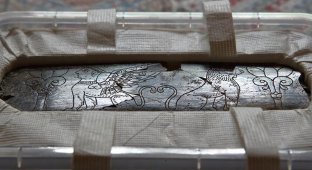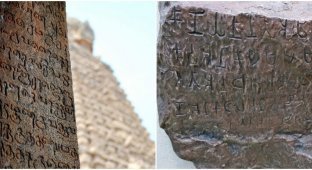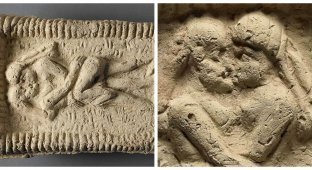Inscriptions in an unknown Indo-European language were found in the ancient capital of the Hittites, Hattusa (5 photos)
In Turkey, among tens of thousands of ancient clay tablets, an outlandish text was discovered, written during the Hittite Empire in the second millennium BC. No one yet knows what this cuneiform script says, but it appears to be a long-forgotten language that existed more than 3 thousand years ago. 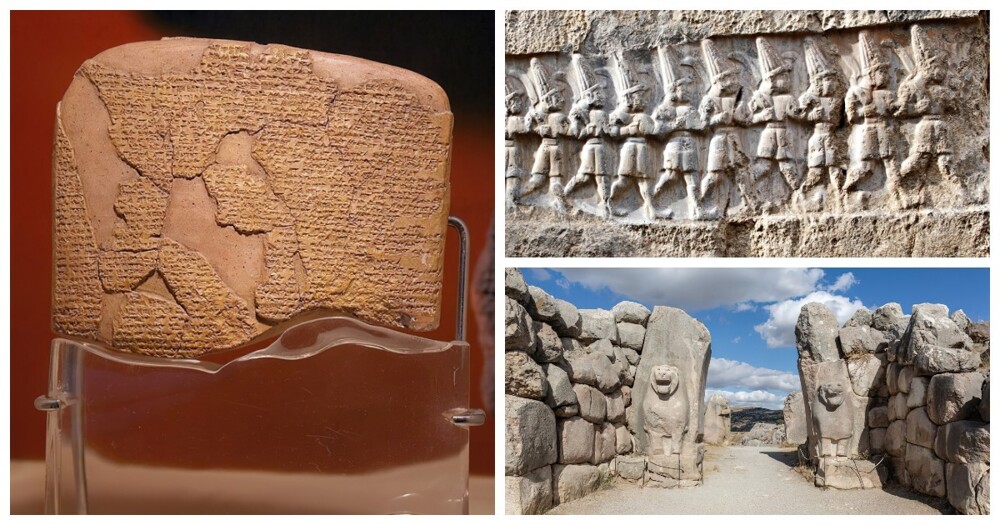
Experts say the mysterious writings are unlike any other ancient writing found in the Middle East, although they appear to share roots with other Anatolian and Indo-European languages. 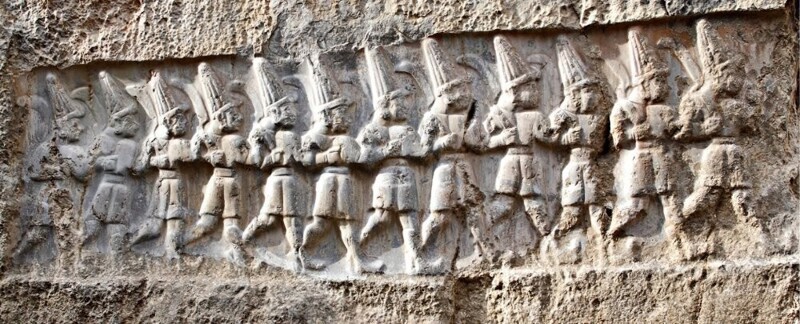
Hittite gods carved in stone in the capital of the Hittite Empire
The insidious scrawl begins at the end of the cult ritual text, written in Hittite - the oldest known Indo-European language - after an introduction that essentially translates as follows: “Read further in the language of the land of Kalashma.”
Kalashma refers to an organized Bronze Age society that was probably located on the northwestern edge of the larger Hittite Empire in ancient Anatolia - some distance from the capital of Hattusa, where this clay tablet was later found.
According to Andreas Schachner, director of archaeological excavations at the ruins of Hattusa, when he first picked up the tablet, he felt its importance. In particular, he noted that this clay tablet was remarkably well preserved compared to more than 25,000 others found at the same site in what is now Boğazkale, Turkey. 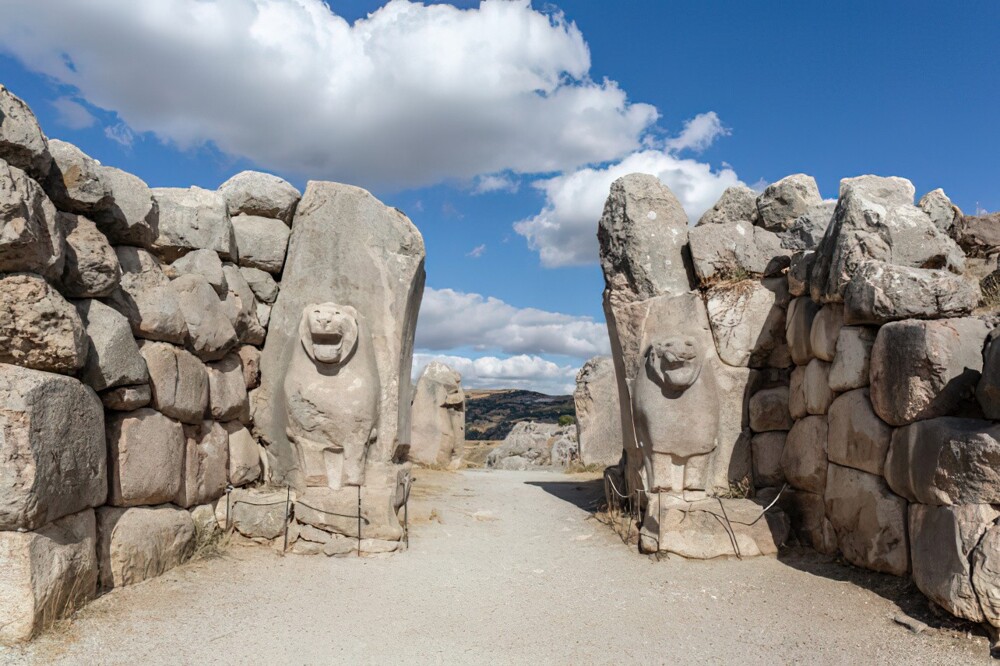
Lion Gate of Hattusa, capital of the Hittite Empire
For more than a century, historians, archaeologists and linguists have been working together to uncover and translate Hattusa's incredible archive of royal treaties, political correspondence, legal and religious texts.
Although most of these tablets were written in Hittite cuneiform, specialists working at the same site discovered other languages. These writings appear to come from various ethnic groups that were once in the shadow of the Hittite Empire during its reign over much of Anatolia from 1650 to 1200 CE. BC.
The recent discovery of yet another language is exciting, although not entirely surprising. According to historians, the Hittites showed great interest in keeping records of rituals in foreign languages. And not only for scientific reasons. The Hittite Empire apparently celebrated thousands of gods and goddesses. As the Hittites conquered more and more lands on the large peninsula between the Black and Mediterranean seas, the empire “absorbed” new religions as a way to attract new subjects into its ranks.
By showing respect to other religions, the empire likely hoped to gain respect during its expansion. 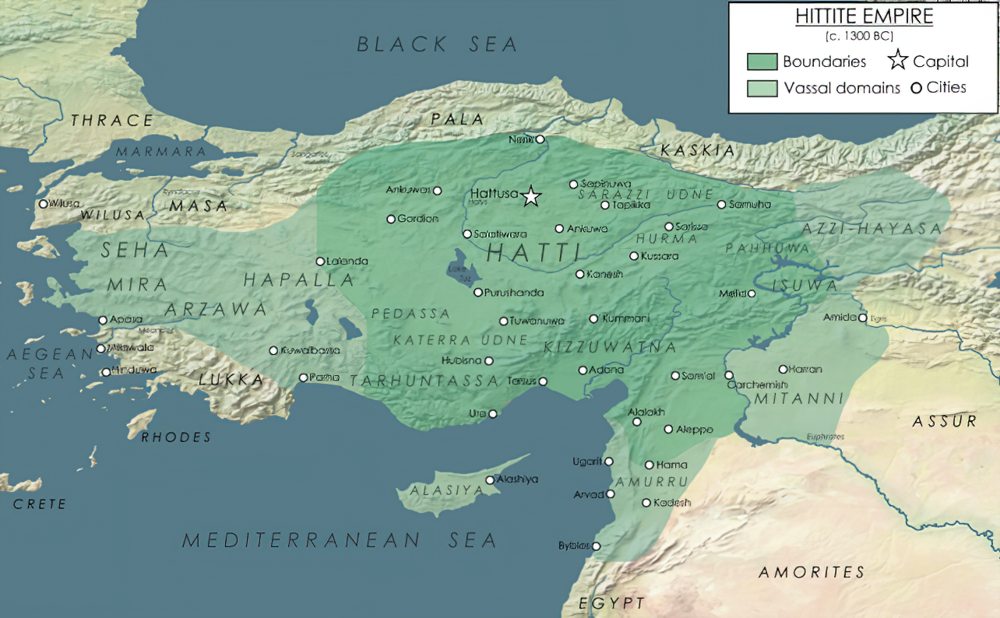
Map of the Hittite Empire at its greatest height, around 1300 BC. e.
According to the ancient Anatolian historian Tyulin Cengiz, the royal archives of Hattusa mention deities that were worshiped even in Syria and Mesopotamia.
“The acceptance of these gods in the absence of their own pantheon testifies to the existence of a culture of tolerance,” writes Cengiz.
In the ancient Hittite kingdom, the sole purpose of subjects appears to have been to worship their divine overlords in exchange for health, food and happiness.
Scholars suggest that the empire's royal archives were a way to consolidate this "state cult" and "provide a detailed picture of the kind of attention the gods and goddesses required and what kind of attention was given to them."
Borrowing ideas such as cuneiform systems, traditions and religions was likely a way of expanding the empire's sphere of influence. It is known that warriors from Kalashma in 1274 BC. e. fought on the side of the Hittites against the Egyptian Empire. 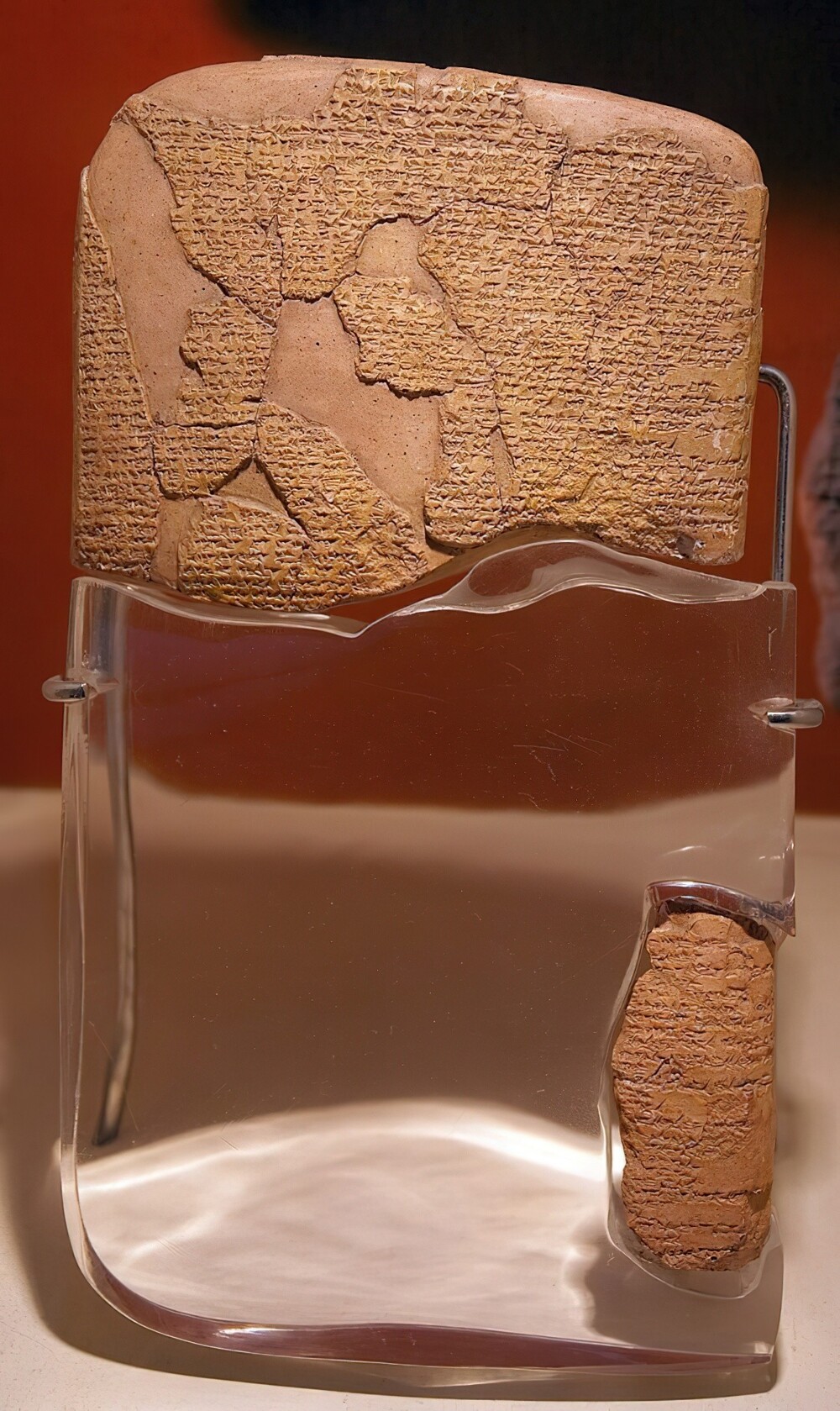
Clay tablet detailing the Treaty of Kadesh discovered in Boğazkale, Türkiye
Currently, there are no photographs of the newly discovered tablet with Kalashma writings, since experts are still working on its translation. The scientists hope to publish their findings, along with images of their findings, next year.
The world is waiting with bated breath to see what this sign will say.












